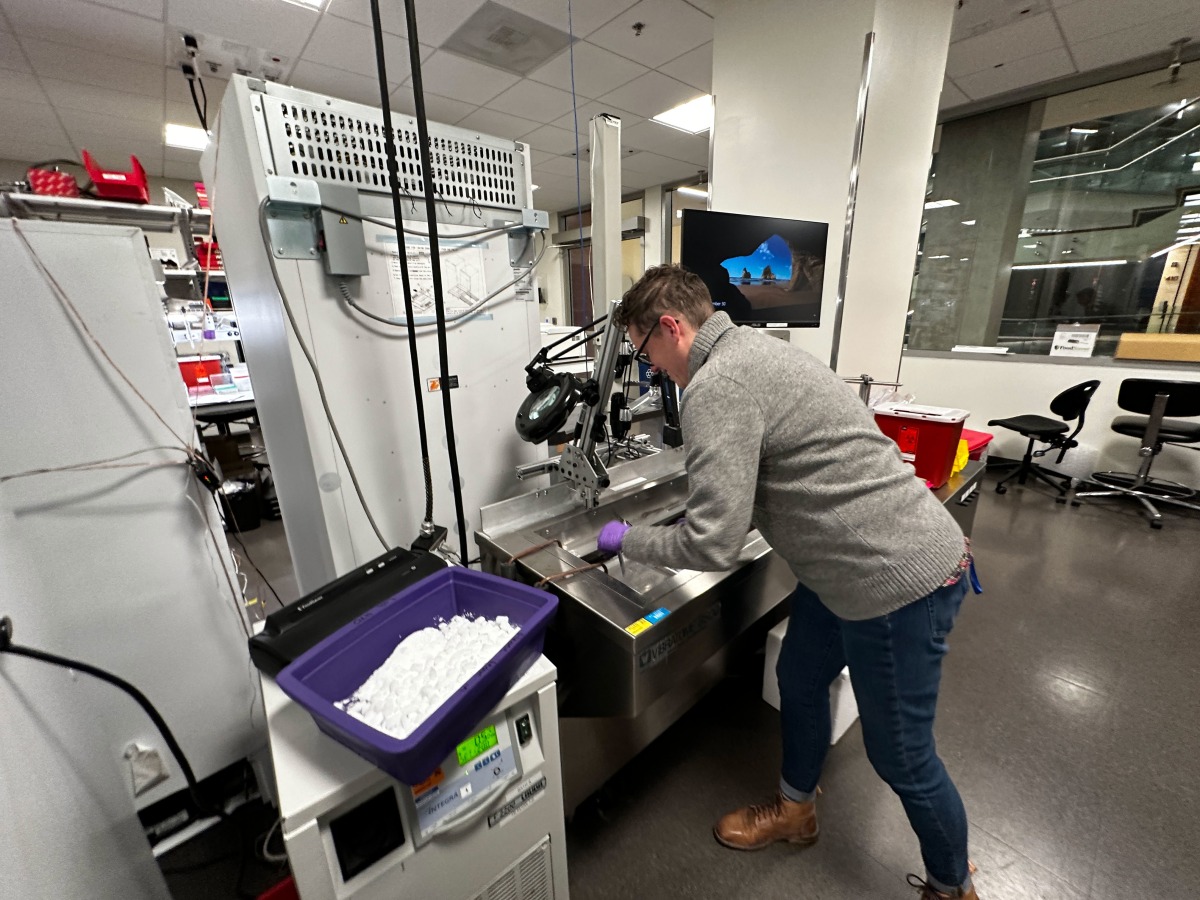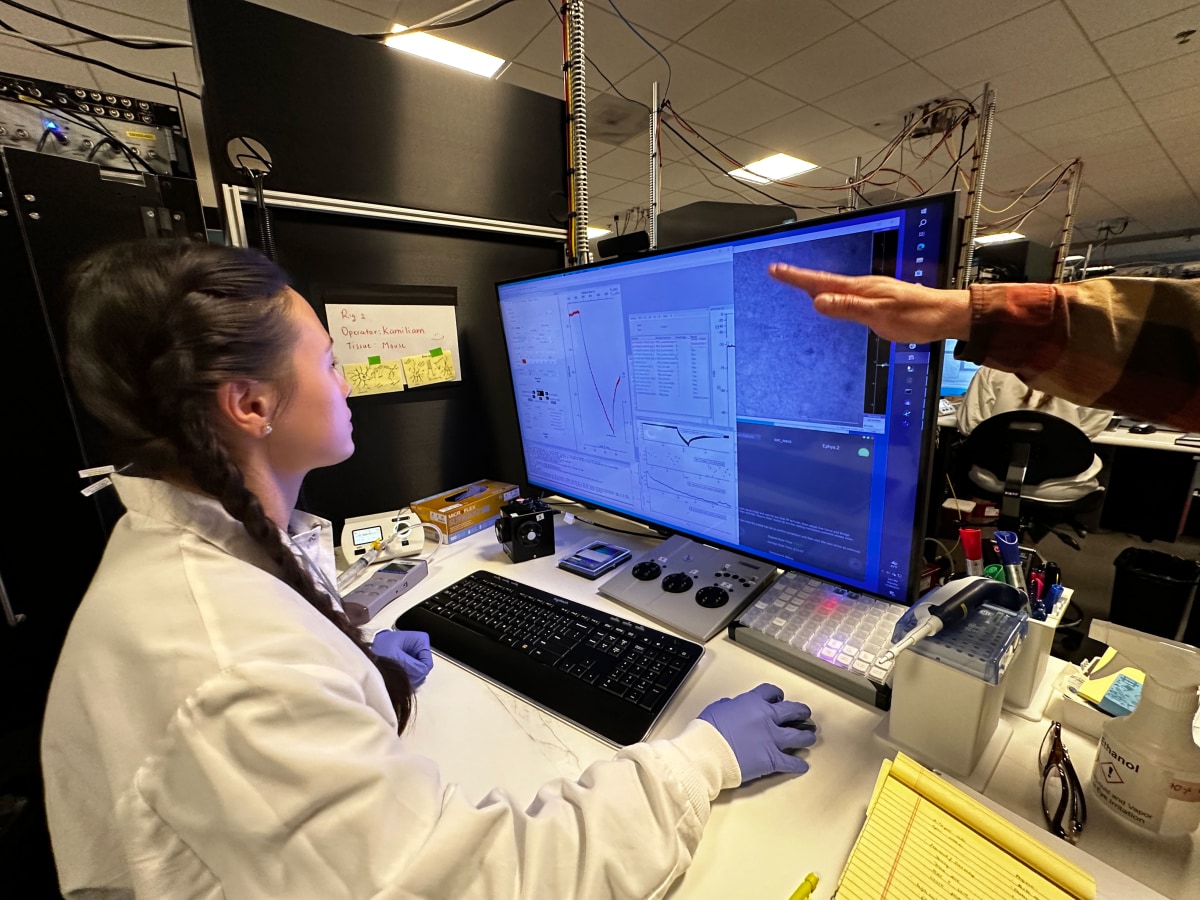[ad_1]
What mysteries might a time-lapse of a single cell unlock, and how might it transform our understanding of disease and the body’s most granular processes—over the long term and in real time, to fuel new medicines? On Thursday, a powerhouse academic trio of the Allen Institute, the Chan Zuckerberg Initiative (CZI), and the University of Washington announced the Seattle Hub for Synthetic Biology (SEAHub) to take on that exact groundbreaking work: a collaborative to develop biotechnologies that create a historical biological record down to the single cell level and give scientists clues on when and how to intervene against burgeoning diseases.
The science at the heart of SEAHub is a foundation for future discovery in the life sciences, says Rui Costa, a brain scientist, molecular biologist, and CEO and president of the Allen Institute—the nonprofit neuroscience and cell-biology research behemoth created by Microsoft cofounder Paul Allen in 2003 and key contributor to a milestone “brain atlas” mapping the inner-workings of the brain published last month—in an interview and guided tour of its Seattle headquarters with Fast Company leading up to the institute’s 20-year anniversary Thursday.


Inside the Allen Institute, researchers map the responses of human brain cells. [Photos: courtesy of the author]
“Can you imagine if you take a cell, and you’d have a little recorder of how many inflammations or infections I had?” says Costa. “Or what did my body experience using the cell’s natural sensors? So, through the intelligent genomic design of a few cells, you could have live recorders of your history.”
That technology, in turn, means that you can take a spontaneous response or a mutation at the genetic level and capture its effect on a cell. From that cellular effect, you can climb up to an effect on your body, such as, say, painful inflammation that might indicate an immune system disease—the kind of thing your doctor would notice when you visit the clinic with those symptoms.
“I could say, hey, about one year ago, there was a large inflammatory response in your organism, you know, something happened here,” explains Costa. “Of course, you don’t have awareness of that, but there are ways our body can record things that happened.” In lay terms, the implication is, scientists and drug developers would have powerful new tools to see exactly how a cell changes over time and the moment that spurs that biological event—a real-time crystal ball, giving them a glimpse at, not just the best biological targets, but the best biological moments to intervene before a disease can take root.
Executives from the Allen Institute and CZI, and lead scientists from UW Medicine who will be leading the Seattle Hub for Synthetic Biology, compare the effort to a “smart watch” for the genome that has the potential to revolutionize drug development strategies and foster untold future discovery.
“Currently, when biologists take measurements, we’re limited to either observing how a few things change over time with a microscope or to measuring everything, but only at the moment in time that we break open the cell,” said Jay Shendure, executive director of the new hub and a medical scientist and professor of genome sciences at UW Medicine, in a statement. “With the kind of genomic smart watch that we’re aiming to build, one could recover the full autobiography of each cell rather than only the last page.”
Priscilla Chan, cofounder and co-CEO of CZI, draws similar comparisons and their implications for our understanding of genetics, cells, disease, and their interplay with our environments. “By developing new technologies to measure and understand the history of our cells over time, including how they are impacted by the environment around them, genetic mutations, and other factors, we can expand scientists’ understanding of what happens at the cellular level when we go from healthy to sick, and help pinpoint the earliest causes of disease,” said Chan in a statement announcing the research hub.
The democratic nature of the synthetic biology hub’s work is key for Costa, who believes the true excitement lies not just in the technology, but in the quixotic quest for scientific discovery and collaboration.
“Discovery changes the world. So, the sharing of knowledge is empowering people,” he says.
[ad_2]
Source link

